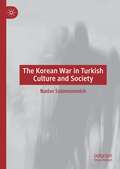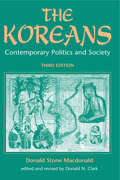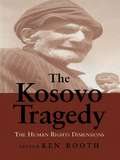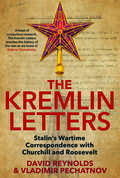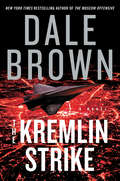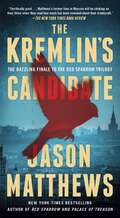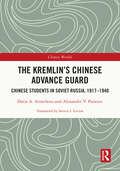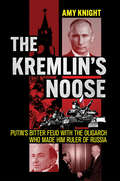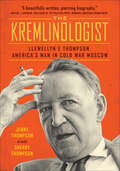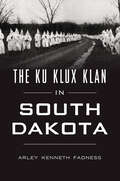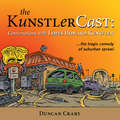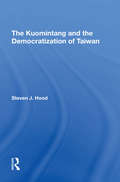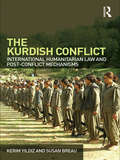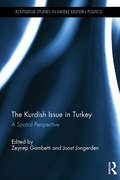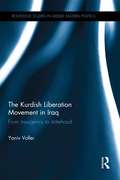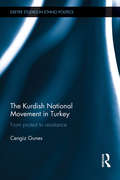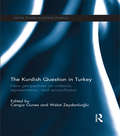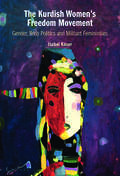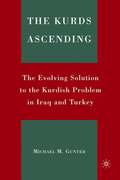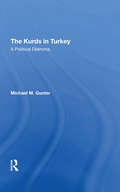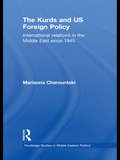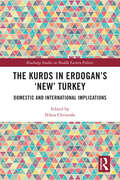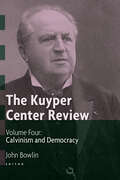- Table View
- List View
The Korean War in Turkish Culture and Society
by Nadav SolomonovichThis book explores the important role that the Korean War played in Turkish culture and society in the 1950s. Despite the fact that fewer than 15,000 Turkish soldiers served in Korea, this study shows that the Turkish public was exposed to the war in an unprecedented manner, considering the relatively small size of the country’s military contribution. It examines how the Turkish people understood the war and its causes, how propaganda was used to ‘sell’ the war to the public, and the impact of these messages on the Turkish public. Drawing on literary and visual sources, including archival documents, newspapers, protocols of parliamentary sessions, books, poems, plays, memoirs, cartoons and films, the book shows how the propaganda employed by the state and other influential civic groups in Turkey aimed to shape public opinion regarding the Korean War. It explores why this mattered to Turkish politicians, viewing this as instrumental in achieving the country’s admission to NATO, and why it mattered to Turkish people more widely, seeing instead a war in the name of universal ideas of freedom, humanity and justice, and comparing the Turkish case to other states that participated in the war.
The Koreans: Contemporary Politics And Society, Third Edition
by Donald S MacdonaldIn this new edition, Donald Clark has thoroughly revised and updated Donald Macdonald's widely praised introduction to Korea, describing and assessing the volatile and dramatic developments on the peninsula over the last five years. Remaining true to Macdonald's original conception, Clark has reworked the existing text from the perspective of the mid-1990s to take account of the enormous political and economic changes in South Korea, the evolving relationship between North and South, and the implications of North Korea's leadership transition and nuclear capability.
The Kosovo Tragedy: The Human Rights Dimensions
by Ken BoothThe 1999 conflict in Kosovo is seen as being as significant for international affairs as the pulling down of the Berlin Wall, because of the centrality of human rights in the build-up, conduct and aftermath of the war. This volume is an attempt to explore this human rights tragedy.
The Kravchenko Case
by Gary KernBased on the private, unpublished papers of Victor Kravchenko, never before available to researchers and historians; hundreds of FBI documents won after a six-year lawsuit under the Freedom of Information Act; and extensive interviews with the defector's sons and associates, The Kravchenko Case tells the story of a man who broke away from the closed Soviet society, defected to America, and then waged a one-man war against Stalin's dictatorial regime.
The Kremlin Letters: Stalin's Wartime Correspondence with Churchill and Roosevelt
by David Reynolds Vladimir PechatnovA penetrating account of the dynamics of World War II’s Grand Alliance through the messages exchanged by the "Big Three" Stalin exchanged more than six hundred messages with Allied leaders Churchill and Roosevelt during the Second World War. In this riveting volume—the fruit of a unique British-Russian scholarly collaboration—the messages are published and also analyzed within their historical context. Ranging from intimate personal greetings to weighty salvos about diplomacy and strategy, this book offers fascinating new revelations of the political machinations and human stories behind the Allied triumvirate. Edited and narrated by two of the world’s leading scholars on World War II diplomacy and based on a decade of research in British, American, and newly available Russian archives, this crucial addition to wartime scholarship illuminates an alliance that really worked while exposing its fractious limits and the issues and egos that set the stage for the Cold War that followed.
The Kremlin Strike: A Novel (Brad McLanahan #5)
by Dale BrownIn this exciting, visionary, and all-too-plausible next chapter in the legendary Dale Brown’s New York Times bestselling techno-warfare series, Brad McLanahan and the Iron Wolf Squadron must fight the Russians on a dangerous, untested battlefield: outer space.The previous administration’s ineffective response to the growing Russian threat has left America vulnerable. Setting a bold course for America’s defense, the decisive and strong new president, John Dalton Farrell, intends to challenge Russian aggression head on. Brad and Patrick McLanahan and the formidable Iron Wolf Squadron—including the recently injured Nadia Roz, rested and back to fighting form thanks to a pair of state-of-the-art prosthetic legs—are ready and eager to join the battle. But even with their combined forces, the Russian menace may prove too great for the Americans to overcome. Done with provocative skirmishes and playing for small stakes, the Russian president has set his sights on the ultimate prize: controlling the entire world. Expanding beyond earth’s bounds, the Russians have built a new high-tech space station and armed it with weaponry capable of destroying US satellites as well as powerful missiles pointed at strategic targets across earth.Devising a cunning plan of attack, Brad, Nadia, and the Iron Wolf warriors will take to the skies in their advanced space planes to destroy the space station, check the Russians’ plan for dominance, and save the world. But is it already too late?
The Kremlin's Candidate: A Novel (Red Sparrow #3)
by Jason Matthews<P>In the final, thrilling installment of the Red Sparrow Trilogy, Russian counterintelligence chief Dominika Egorova and her lover, CIA agent Nate Nash, must find a Russian agent about to be appointed to a very high office in the US government. <P>With a plot ripped from tomorrow’s headlines, Jason Matthews’s high-powered, seductive third novel not only continues the dangerous entanglements of Dominika and Nate but reveals with chilling authenticity how Russian espionage can place agents in the most sensitive positions of power. The novel opens with Russian president Vladimir Putin planning the covert assassination of a high-ranking US official with the intention of replacing him with a mole whom Russian intelligence has cultivated for more than fifteen years. <P>Catching wind of this plot, Dominika, Nate, and their CIA colleagues must unmask the traitor before he or she is able to reveal that Dominika has been spying for years on behalf of the CIA. Any leak, any misstep, will expose her as a CIA asset and result in a one-way trip to a Moscow execution cellar. Along the way, Matthews, a thirty-three-year veteran of the CIA and winner of the Edgar Award for Best First Novel, sets vivid, unforgettable scenes in Moscow; Washington, DC; Hong Kong; New York; the Sudan; and Turkey, and introduces two cold-blooded killers: Iosip Blokhin, a brilliant Spetsnaz military officer, and Grace Gao, ravishing Chinese spy, master of Kundalini yoga, and Beijing-trained seductress. <P>Ultimately, the lines of danger converge on the spectacular billion-dollar presidential palace on the Black Sea during a power weekend with Putin’s inner circle. Does Nate sacrifice himself to save Dominika? Does she forfeit herself to protect Nate? Do they go down together? <P>This dazzling finale to Jason Matthews’s New York Times bestselling Red Sparrow Trilogy, called “a primer in twenty-first-century spying...terrifically good” (The New York Times Book Review), confirms the critical acclaim he received for the first two novels, praise that compared Matthews to John le Carré and Ian Fleming. The Kremlin’s Candidate will be published just before the 2018 release of Red Sparrow, a major motion picture starring Jennifer Lawrence, produced by 20th Century Fox. <P><b> A New York Times Bestseller</b>
The Kremlin's Chinese Advance Guard: Chinese Students in Soviet Russia, 1917-1940 (Chinese Worlds)
by Alexander V. Pantsov Daria A. ArinchevaThis book is a comprehensive historical study of the Bolshevik system of ideological and political indoctrination of a substantial number of Chinese revolutionaries, who studied in Comintern international institutions in Soviet Russia from the October Revolution of 1917 to the Great Terror of the late 1930s. Including analysis of previously unknown documentary materials from the Bolshevik Party and Comintern archives, as well as memoirs of former Chinese students and prisoners of Stalin’s camps, the book determines how effective the training of Chinese students in the main educational centers in Moscow was, how well it compared to the existing level of Marxist education in the USSR, and how the Stalinist regime defined the lives and fates of the Chinese revolutionaries in Soviet Russia. In raising questions about the transferability of revolutionary ideology, experience, and practice from the revolutionaries of one country to would-be revolutionaries in other countries the authors ask: can revolution be exported? Shedding light on an under-explored aspect of the early history of the CCP and the Soviet Bolshevik Party this book will be a valuable resource to both students and scholars of Chinese and Russian history and politics.
The Kremlin's Noose: Putin's Bitter Feud with the Oligarch Who Made Him Ruler of Russia (NIU Series in Slavic, East European, and Eurasian Studies)
by Amy KnightIn The Kremlin's Noose Amy Knight tells the riveting story of Vladimir Putin and the oligarch Boris Berezovsky, who forged a relationship in the early years of the Yeltsin era. Berezovsky later played a crucial role in Putin's rise to the Russian presidency in March 2000. When Putin began dismantling Boris Yeltsin's democratic reforms, Berezovsky came into conflict with the new Russian leader by reproaching him publicly. Their relationship quickly disintegrated into a bitter feud played out against the backdrop of billion-dollar financial deals, Kremlin in-fighting, and international politics. Dubbed the "Godfather of the Kremlin" by the slain Russian-American journalist Paul Klebnikov, Berezovsky was a successful businessman and media mogul who had an outsized role in Russia after 1991. Worth a reported $3 billion by 1997, Berezovsky engineered the reelection of Yeltsin as president in 1996 and negotiated an end to the 1995–96 Chechen war. Despite his own wealth, power, and influence, once he became Putin's enemy, Berezovsky was forced into exile in Britain, where he waged a determined campaign to topple Putin. Kremlin authorities responded with bogus criminal charges and demanded Berezovsky's extradition. Death threats soon followed. In March 2013, after losing a British court battle with another Russian oligarch, Berezovsky was found dead at his ex-wife's mansion outside London. Whether he died from suicide or murder remains a mystery.The Kremlin's Noose sheds crucial new light on the Kremlin's volatile politics under Yeltsin and Putin, helping us understand why democracy in Russia failed so badly. Knight provides a fascinating narrative of Putin's rise to power and his authoritarian rule, told through the prism of his relationship with Russia's once most powerful oligarch, Boris Berezovsky.
The Kremlinologist: Llewellyn E Thompson, America's Man in Cold War Moscow (Johns Hopkins Nuclear History and Contemporary Affairs)
by Jenny Thompson Sherry ThompsonAn Owl in a Hawk’s World: Top diplomat Llewellyn E Thompson was everywhere the Cold War was.Winner of the New Mexico/Arizona Book Award for Best BiographyWinner of the New Mexico/Arizona Book Award for Best BiographyAgainst the sprawling backdrop of the Cold War, The Kremlinologist revisits some of the twentieth century's greatest conflicts as seen through the eyes of its hardest working diplomat, Llewellyn E Thompson. From the wilds of the American West to the inner sanctums of the White House and the Kremlin, Thompson became an important advisor to presidents and a key participant in major global events, including the Cuban Missile Crisis and the Vietnam War. Yet unlike his contemporaries Robert S. McNamara and Dean Rusk, who considered Thompson one of the most crucial Cold War actors and the "unsung hero" of the Cuban Missile Crisis, he has not been the subject of a major biography—until now. Thompson's daughters Jenny and Sherry Thompson skillfully and thoroughly document his life as an accomplished career diplomat. In vigorous prose, they describe how Thompson joined the Foreign Service both to feed his desire for adventure and from a deep sense of duty. They also detail the crucial role he played as a negotiator unafraid of compromise. Known in the State Department as "Mr. Tightlips," Thompson was the epitome of discretion. People from completely opposite ends of the political spectrum lauded his approach to diplomacy and claimed him as their own. Refuting historical misinterpretations of the Berlin Crisis, the Austrian State Treaty, and the Cuban Missile Crisis, the Thompsons tell their father's fascinating story. With unprecedented access to Thompson's FBI dossier, State Department personnel files, letters, diaries, speeches, and documents, and relying on probing interviews and generous assistance from American and Russian archivists, historians, and government officials, the authors bring new material to light, including important information on the U-2, Kennan's containment policy, and Thompson's role in US covert operations machinery. This unique and monumental biography not only restores a central figure to history, it makes the crucial events he shaped accessible to a broader readership and gives contemporary readers a backdrop for understanding the fraught United StatesRussia relationship that still exists today.
The Ku Klux Klan and Freemasonry in 1920s America: Fighting Fraternities (Routledge Studies in Fascism and the Far Right)
by Miguel HernandezThe Second Ku Klux Klan’s success in the 1920s remains one of the order’s most enduring mysteries. Emerging first as a brotherhood dedicated to paying tribute to the original Southern organization of the Reconstruction period, the Second Invisible Empire developed into a mass movement with millions of members that influenced politics and culture throughout the early 1920s. This study explores the nature of fraternities, especially the overlap between the Klan and Freemasonry. Drawing on many previously untouched archival resources, it presents a detailed and nuanced analysis of the development and later decline of the Klan and the complex nature of its relationship with the traditions of American fraternalism.
The Ku Klux Klan in South Dakota
by Arley Kenneth FadnessA startling rise and retreat In the 1920s, a reborn Ku Klux Klan slithered into South Dakota. Bold at times, the group intimidated citizens in every county. KKK anti-Catholicism sentiment resulted in the murder of Father Arthur Belknap of Lead. Idealized Gutzon Borglum, sculptor of Mount Rushmore, operated as a white supremacist and KKK leader. In 1925, animosity between the KKK and Fort Meade soldiers came to a clash one night in Sturgis. The clatter of two borrowed .30 caliber Browning cooled machine guns split the air over the heads of a Klan gathering across the valley. Author Arley Fadness follows the Klan's trail throughout the Rushmore state.
The KunstlerCast: Conversations with James Howard Kunstler
by Duncan CraryBased off the popular podcast, this book collects one man’s conversations with an outspoken social critic on the negative effects of the suburbs.James Howard Kunstler has been described as “one of the most outrageous commentators on the American built environment.” An outspoken critic of suburban sprawl, Kunstler is often controversial and always provocative. The KunstlerCast is based on the popular weekly podcast of the same name, which features Kunstler in dialogue with author Duncan Crary, offering a personal window into Kunstler’s worldview.Presented as a long-form conversational interview, The KunstlerCast revisits and updates all the major ideas contained in Kunstler’s body of work, including:The need to rethink current sources of transportation and energyThe failure of urban planning, architecture and industrial societyAmerica’s plastic, dysfunctional cultureThe reality of peak oilWhether sitting in the studio, strolling city streets, visiting a suburban mall or even “Happy Motoring,” the grim predictions Kunstler makes about America’s prospects are leavened by his signature sharp wit and humor. This book is rounded out by commentary, footnotes and supplemental vignettes told from the perspective of an “embedded” reporter on the Kunstler beat.Readers may or may not agree with the more dystopian of Kunstler’s visions. Regardless, The KunstlerCast is bound to inspire a great deal of thought, laughter, and hopefully, action.Praise for The KunstlerCast“A bracing dose of reality for an unreal world.” —Stephen J. Dubner, co-author of Freakonomics and SuperFreakonomics“Erudite, eloquent . . . with good humor about the hilariously grotesque North American nightmare of car-addicted suburban sprawl.” —Dmitry Orlov, author of Reinventing Collapse“Prepare to be enlightened, infuriated and amused.” —Gregory Greene, Director, The End of Suburbia“So enlightening yet casual that the reader feels like they’re eavesdropping into the den of Kunstler’s prodigious mind.” —Andrew D. Blechman, author of Leisureville
The Kuomintang And The Democratization Of Taiwan
by Steven J HoodIs the Kuomintang - the nationalist party of China - the villain it is sometimes portrayed to be? Or is it the embodiment of the political and moral good that partisans have claimed it to be? The party has managed a feat of economic modernization in Taiwan and has become a proponent of democracy, yet its reputation has been marred by brutal acts of repression and ineptitude. Focusing on the role of Kuomintang party elites in the democratization process in Taiwan, this book considers the Kuomintang's evolution from a Leninist state party to a fractious one in a competitive political system.
The Kurdish Conflict: International Humanitarian Law and Post-Conflict Mechanisms
by Susan Breau Kerim YildizThis book is highly topical considering the recent resurgence of violence by the PKK, the incursions into Northern Iraq by the Turkish army and security forces and Turkey's EU accession negotiations. Turkey has become an increasingly important player in Middle Eastern geopolitics. More than two decades of serious conflict in Turkey are proving to be a barrier to improved relations between Turkey and the EU. This book is the first study to fully address the legal and political dimensions of the conflict, and their impact on mechanisms for conflict resolution in the region, offering a scholarly exploration of a debate that is often politically and emotionally highly charged. Kerim Yildiz and Susan Breau look at the practical application of the law of armed conflicts to the ongoing situation in Turkey and Northern Iraq. The application of the law in this region also means addressing larger questions in international law, global politics and conflict resolution. Examples include belligerency in international law, whether the ‘War on Terror’ has resulted in changes to the law of armed conflict and terrorism and conflict resolution. The Kurdish Conflict explores the practical possibilities of conflict resolution in the region, examining the political dynamics of the region, and suggesting where lessons can be drawn from other peace processes, such as in Northern Ireland. This book will be of great value to policy-makers, regional experts, and others interested in international humanitarian law and conflict resolution.
The Kurdish Issue in Turkey: A Spatial Perspective (Routledge Studies in Middle Eastern Politics)
by Zeynep Gambetti Joost JongerdenThis volume gives a thorough and comprehensive analysis of the Kurdish issue in Turkey from a spatial perspective that takes into account geographical variations in identity formation, exclusion and political mobilisation. Although analysis of Turkey’s Kurdish issue from a spatial perspective is not new, spatial analyses are still relatively scarce. More often than not, Kurdish studies consist of time-centred work. In this book, the attention is shifted from outcome-oriented analysis of transformation in time towards a spatial analysis. The authors in this book discuss the spatial production of home, identity, work, in short, of being in the world. The contributions are based on the tacit avowal that the Kurdish question, in addition to being a question of group rights, is also one of spatial relations. By asking a different set of questions, this book examines; which spatial strategies have been employed to deal with Kurds? Which spatial strategies are developed by Kurds to deal with state, and with the neo-liberal turn? How are these strategies absorbed and what counter-strategies are developed, both in cities populated by the Kurds in south-eastern Turkey and in other regions? Emphasizing that identity or place, its particularity or uniqueness, arises from social practices and social relations, this book is essential reading for scholars and researchers working in Kurdish and Turkish Studies, Urban and Rural Studies and Politics more broadly.
The Kurdish Liberation Movement in Iraq: From Insurgency to Statehood (Routledge Studies in Middle Eastern Politics)
by Yaniv VollerInvestigating the transformation of the Kurdish liberation movement in Iraq this book explores its development from an armed guerrilla movement, engaged in a war for liberation with the government in Baghdad, into the government of a de facto Kurdish state known as the Kurdistan Regional Government. The book seeks to better explain the nature and evolution of the Kurdish liberation struggle in Iraq, which has had important implications over regional geopolitics. Despite attracting growing international attention, the struggle remains understudied. By applying the theoretical framework of de facto statehood to the post-1991 Kurdish liberation movement, the book offers a new approach to understanding the struggle, with a thorough empirical investigation informed by International Relations theory. Identifying international legitimacy, interaction and identity as significant themes in the politics of de facto states and important variables shaping the evolution and policies of these actors, at both the domestic and international levels, this book will be of interest to students and researchers of International Relations, Middle East Politics and Political Science.
The Kurdish National Movement in Turkey: From Protest to Resistance (Exeter Studies in Ethno Politics)
by Cengiz GunesThis book provides an interpretive and critical analysis of Kurdish identity, nationalism and national movement in Turkey since the 1960s. By raising issues and questions relating to Kurdish political identity and highlighting the ideological specificity, diversity and the transformation of Kurdish nationalism, it develops a new empirical dimension to the study of the Kurds in Turkey. Cengiz Gunes applies an innovative theoretical approach to the analysis of an impressively large volume of primary sources and data drawn from books and magazines published by Kurdish activists, political parties and groups. The analysis focuses on the specific demands articulated by the Kurdish national movement and looks at Kurdish nationalism at a specific level by disaggregating the nationalist discourse, showing variations over time and across different Kurdish nationalist organisations. Situating contemporary Kurdish political identity and its political manifestations within a historical framework, the author examines the historical and structural conditions that gave rise to it and influenced its evolution since the 1960s. The analysis also encompasses an account of the organisational growth and evolution of the Kurdish national movement, including the political parties and groups that were active in the period. Bringing the study of the organisational development and growth of the Kurdish National Movement in Turkey up to date, this book will be an important reference for students and scholars of Middle Eastern politics, social movements, nationalism and conflict.
The Kurdish Question in Turkey: New Perspectives on Violence, Representation and Reconciliation (Exeter Studies in Ethno Politics)
by Cengiz Gunes Welat ZeydanlioğluAlmost three decades have passed since political violence erupted in Turkey’s south-eastern regions, where the majority of Turkey’s approximately 20 million Kurds live. In 1984, the Kurdistan Workers’ Party (PKK) initiated an insurgency which intensified in the following decades and continues to this day. Kurdish regions in Turkey were under military rule for more than a decade and the conflict has cost the lives of 45,000 people, including soldiers, guerrillas and civilians. The complex issue of the Kurdish Question in Turkey is subject to comprehensive examination in this book. This interdisciplinary edited volume brings together chapters by social theorists, political scientists, social anthropologists, sociologists, legal theorists and ethnomusicologists to provide new perspectives on this internationally significant issue. It elaborates on the complexity of the Kurdish question and examines the subject matter from a number of innovative angles. Considering historical, theoretical and political aspects of the Kurdish question in depth and raising issues that have not been discussed sufficiently in existing literature, this book is an invaluable resource for students and scholars of Nationalism and Conflict, Turkish Politics and Middle Eastern politics more broadly.
The Kurdish Women's Freedom Movement: Gender, Body Politics and Militant Femininities
by Isabel KäserAmidst ongoing wars and insecurities, female fighters, politicians and activists of the Kurdish Freedom Movement are building a new political system that centres gender equality. Since the Rojava Revolution, the international focus has been especially on female fighters, a gaze that has often been essentialising and objectifying, brushing over a much more complex history of violence and resistance. Going beyond Orientalist tropes of the female freedom fighter, and the movement's own narrative of the 'free woman', Isabel Käser looks at personal trajectories and everyday processes of becoming a militant in this movement. Based on in-depth ethnographic research in Turkey and Iraqi Kurdistan, with women politicians, martyr mothers and female fighters, she looks at how norms around gender and sexuality have been rewritten and how new meanings and practices have been assigned to women in the quest for Kurdish self-determination. Her book complicates prevailing notions of gender and war and creates a more nuanced understanding of the everyday embodied epistemologies of violence, conflict and resistance.
The Kurds Ascending
by Michael M. GunterThis is the first book to be primarily directed at analyzing the evolving solution to the Kurdish problem in Iraq and Turkey. Although this solution remains cautiously fragile, it does represent a strikingly positive future that until recently seemed so bleak.
The Kurds In Turkey: A Political Dilemma
by Michael GunterThis book analyzes the Kurdish problem in Turkey from the point of view of the Turkish authorities, as well as from the perspective of disaffected Kurds living in that state and abroad. It also analyzes the political instability and terrorism rampant in Turkey during the late 1970s.
The Kurds and US Foreign Policy: International Relations in the Middle East since 1945 (Routledge Studies in Middle Eastern Politics)
by Marianna CharountakiThis book provides a detailed survey and analysis of US–Kurdish relations and their interaction with domestic, regional and global politics. Using the Kurdish issue to explore the nature of the engagement between international powers and weaker non-state entities, the author analyses the existence of an interactive US relationship with the Kurds of Iraq. Drawing on governmental archives and interviews with political figures both in Northern Iraq and the United States, the author places the case study within a broader International Relations context. The conceptual framework centres on the inter-relations between actors (both state and non-state) and structures of material and ideational kinds, while the detailed survey and analysis of US–Kurdish relations, in their interaction with domestic, regional and global politics, forms the empirical core of the study. Stressing the intertwining of domestic and foreign policy as part of the same set of dynamics, the case study explains the emergence of the interactive and institutionalized US relationship with the Kurds of Iraq that has brought about the formation, within an Iraqi framework, of an undeclared US official Kurdish policy in the post-Saddam era. Filling a gap in the literature on US–Kurdish relations as well as the broader topic of International Relations, this book will be of great interest to those in the areas of International Relations, Middle Eastern and Kurdish Politics.
The Kurds in Erdogan's "New" Turkey: Domestic and International Implications (Routledge Studies in Middle Eastern Politics)
by Nikos ChristofisThis book focuses on the AKP government since 2002 during which time the state’s approach to the Kurdish Question has undergone several changes. Examining what preceded and followed the failed putsch of 2016, it explains and critiques that situates the Kurdish Question in its broader context. It stands out with the main objective to avoid any ‘policy-oriented bias’ through an interdisciplinary and multi-thematic approach. The volume discusses the state and policies in the Kurdish region of Turkey, as well as counter-hegemonic discourses that seek to reform existing institutions. Some chapters focus on the domestic aspects and gender perspectives of the Kurdish Question in Turkey, which focus has been taken over by recent developments in Syria and the Middle East in general. Other chapters include a range of new aspects of Turkish society and politics, and the international aspects of Ankara’s policies and its implications not only inside Turkey but also internationally. Taking both domestic and foreign policy aspects into account, the book offers a set of innovative explanations for the state of crisis in Turkey and a solid basis for thinking about the likely path forward. Scholars, researchers and post-graduates, interested in political theory, Kurdish and Middle East politics will find this book invaluable.
The Kuyper Center Review, volume 4: Calvinism and Democracy
by John BowlinExplores the influence of Calvinism on democratic theory and practice Abraham Kuyper (1837-1920) -- pastor, theologian, journalist, and politician -- is highly regarded as exemplifying how a Christian worldview can be confidently expressed in both theory and practice. Honoring the spirit of Kuyper's legacy, The Kuyper Center Review annually publishes substantial essays that relate the tradition of Reformed theology to issues of public life. Kuyper was a principal force, both political and intellectual, behind the democratization of politics and public life that occurred in the Netherlands at the close of the nineteenth century. This volume reflects on that legacy, not only examining its theological roots and historical context but also assessing democracy's prospects in our own day and considering the ways in which Reformed theology might provide resources for democratic criticism and renewal.Contributors: Clifford B. Anderson Michael Brautigam Clay Cooke Michael DeMoor James Eglinton George Harinck Brant Himes David Little Jeffrey Stout Harry Van Dyke
